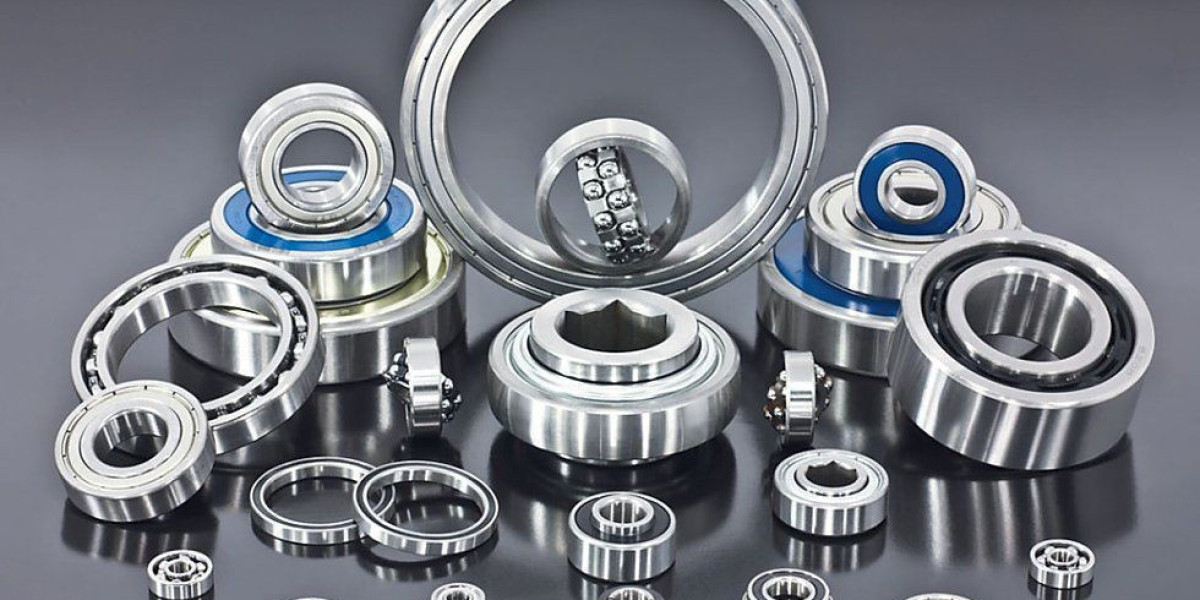In the world of industrial machinery and equipment, bearing suppliers play a crucial role in ensuring smooth operations and optimal performance. Bearings are essential components that facilitate rotational or linear movement by reducing friction between moving parts, thereby supporting heavy loads and enabling precision in machinery. Choosing the right bearing supplier is paramount for maintaining efficiency, reliability, and cost-effectiveness in various industries such as manufacturing, automotive, aerospace, and more.
Understanding the Importance of Bearings
Bearings are mechanical components designed to enable rotational or linear movement by reducing friction and supporting axial and radial loads. They are found in almost every piece of machinery, from simple household appliances to complex industrial equipment. The key functions of bearings include reducing friction, supporting loads, and facilitating smooth movement, thereby extending the life of machinery and ensuring operational efficiency.
Types of Bearings
There are several types of bearings tailored to specific applications and operational requirements:
- Ball Bearings: Utilize balls to maintain separation between bearing races, suitable for high-speed applications and moderate radial loads.
- Roller Bearings: Use cylindrical rollers or spherical rollers to support heavy radial and axial loads, ideal for applications with higher load capacities.
- Plain Bearings: Also known as bushings, these bearings operate with sliding motion rather than rolling elements, suitable for low-speed and high-load applications.
- Thrust Bearings: Designed to support axial loads in one direction, ensuring smooth operation under heavy thrust conditions.
- Tapered Roller Bearings: Feature tapered rolling elements to accommodate combined radial and axial loads, commonly used in automotive wheel hubs and gearboxes.
Factors to Consider When Choosing a Bearing Supplier
Choosing the right bearing supplier is crucial for ensuring quality, reliability, and cost-effectiveness in industrial operations. Here are key factors to consider:
Product Quality: Opt for suppliers who offer bearings manufactured from high-quality materials such as stainless steel, chrome steel, or ceramic, ensuring durability and performance.
Range of Products: Look for suppliers who offer a wide range of bearings to meet diverse application needs, including standard sizes, specialty bearings, and customized solutions.
Industry Experience: Prefer suppliers with extensive experience in the bearing industry, understanding various applications, and providing expert advice on bearing selection and maintenance.
Certifications and Standards: Ensure that the supplier complies with industry standards such as ISO (International Organization for Standardization) and ASTM (American Society for Testing and Materials), guaranteeing product quality and reliability.
Technical Support: Choose suppliers who offer technical support, including bearing selection guidance, troubleshooting assistance, and after-sales service to ensure optimal performance.
Benefits of Choosing a Reliable Bearing Supplier
Partnering with a reliable bearing supplier offers several benefits to industrial businesses:
Improved Operational Efficiency: High-quality bearings reduce friction and wear, minimizing downtime and maintenance costs while maximizing equipment uptime and productivity.
Cost Savings: Investing in durable bearings from a reputable supplier reduces the frequency of replacements and repairs, leading to long-term cost savings.
Enhanced Reliability: Reliable bearings contribute to the overall reliability and performance of machinery, ensuring consistent operation and product quality.
Technical Expertise: Suppliers with technical expertise provide valuable insights into bearing selection, installation, and maintenance practices, optimizing operational efficiency and performance.
Challenges in Bearing Procurement
Despite the benefits, procurement of bearings can pose certain challenges:
Counterfeit Products: The market may be flooded with counterfeit bearings that compromise performance and safety. Choosing reputable suppliers mitigates this risk.
Supply Chain Disruptions: Global supply chain dynamics can impact availability and lead times. Working closely with suppliers helps manage inventory and mitigate disruptions.
Complex Application Requirements: Some applications require specialized bearings with precise specifications. Collaborating with knowledgeable suppliers is crucial in meeting these requirements.
Case Studies and Success Stories
Several industries have benefited from partnering with reputable bearing suppliers:
Automotive Industry: Automotive manufacturers rely on high-performance bearings to ensure smooth operation of vehicle components, enhancing reliability and safety.
Manufacturing Sector: Manufacturers use bearings in machinery and equipment for various processes, optimizing production efficiency and minimizing downtime.
Aerospace Applications: Aerospace engineers specify bearings that meet stringent performance criteria to withstand extreme conditions and ensure aircraft safety and reliability.
Future Trends in Bearing Technology
The bearing industry continues to evolve with advancements in materials, design, and manufacturing processes:
Smart Bearings: Integration of sensors and IoT (Internet of Things) technology enables real-time monitoring of bearing conditions, predicting maintenance needs and optimizing performance.
Advanced Materials: Continued development of lightweight and durable materials such as ceramics and composites improves bearing performance in demanding applications.
Customization: Growing demand for customized bearings tailored to specific application requirements, offering enhanced performance and efficiency.
Conclusion
Choosing the right bearing supplier is pivotal for achieving operational excellence, reliability, and cost-effectiveness in industrial applications. By considering factors such as product quality, range of offerings, industry experience, and technical support, businesses can secure reliable bearings that optimize machinery performance and ensure long-term success. As industries embrace technological advancements and customized solutions, partnering with reputable bearing suppliers becomes increasingly essential to meet evolving demands and maintain competitive advantage in the global market.



